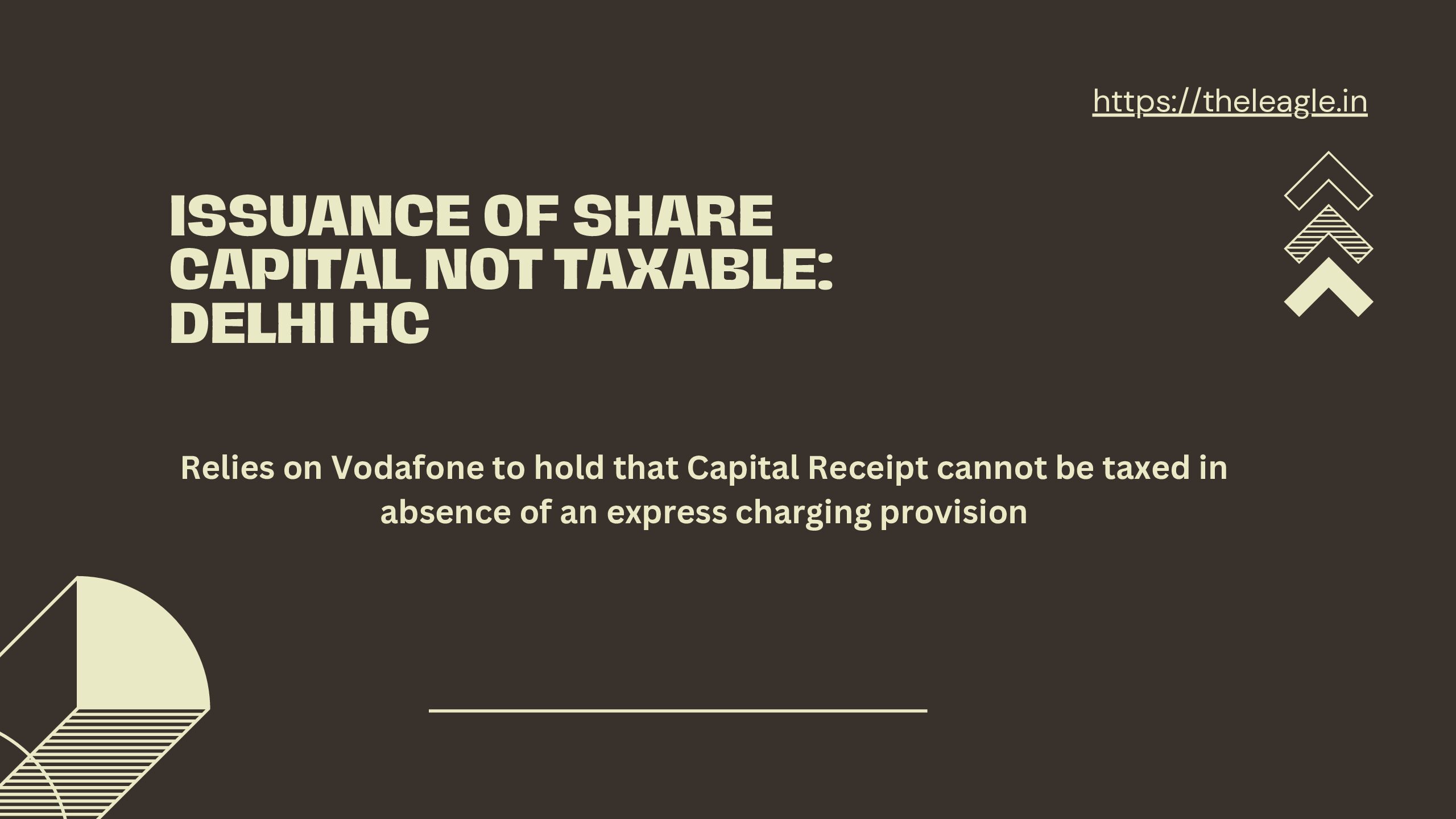The Delhi High Court recently pronounced a decision[1] wherein it adhered to the ratio of Vodafone and Nestlecases that investment by a foreign company via shares in its Indian subsidiary company is not income of the latter and not taxable under IT Act, 1961. The High Court relied on the Press Release by the Union of India indicating its approval of the former case and set aside the notices and subsequent orders issued in the impugned case under Section 148, IT Act, 1961.
Facts
The Delhi High Court was deciding a bunch of appeals together, and briefly elaborated on facts of one of the cases. The High Court elaborated that the petitioner was foreign company, resident in Italy, and subscribed to shares of its Indian subsidiary company. The petitioner subscribed to 15,00,000 shares at a face value of Rs 10 each and made a foreign remittance of Rs 1,50,00,000. The petitioner stated that since it did not earn any income from any source in India, it did not file any income tax returns in India. The Income Tax Department issued notices under Section 148(b) and passed orders under Section 148(d) of the IT Act, 1961 alleging that income had escaped the assessment. The petitioners challenged the said notice and orders and all the consequent actions taken therein. The petitioners assailed the allegations of money laundering and round tripping arguing that the notices did not mention the name of the company whose shares were bought and the Income Tax Department was merely trying to verify the transaction in question and was unable to substantiate any of its allegations.
The Income Tax Department justified its actions by referring to risk management strategy. Explanation 1 of Section 148 states that the information with the Assessing Officer which suggests that income chargeable to tax has escaped assessment means any information flagged in accordance with the risk management strategy formulated by CBDT. The petitioners challenged the constitutional validity of the Explanation as well.
Decision
The Delhi High Court primarily relied on Vodafone and Nestle decisions to agree with the petitioners that the transactions in questions were capital account transactions that were incapable of generating any income. And in the absence of income, IT Act, 1961 cannot be invoked. To recall briefly, the Vodafone case involved issuance of shares by an Indian subsidiary company to its foreign holding company. The Assessing Officer disagreed on the valuation and opined that the shares should have been valued on the higher side. The difference between the share price arrived at by the companies and the higher price arrived by the AO was treated as ‘income foregone’ by the Indian subsidiary company. Accordingly, transfer pricing adjustment was made to tax the income foregone as a loan granted by the subsidiary company to its holding company. The Bombay High Court decided that the transaction could not be taxed under IT Act, 1961 reasoning that Chapter X of IT Act, 1961 – encompassing transfer pricing provisions – was incorporated to prevent underreporting of profits and overreporting of losses – and not to levy tax on capital receipts when there was no express provision to levy tax on such capital receipts.
The Delhi High Court in the impugned case expressed complete concurrence with the Bombay High Court and cited the subsequent acceptance of the Bombay High Court’s decision by the Union of India. In the impugned case, the High Court accordingly set aside the notice and orders issued under Section 148, IT Act, 1961.
Conclusion
The Delhi High Court’s decision is, apart from the Nestle case, another instance where the Bombay High Court’s approach in the Vodafone case has received approval and rightly so. The High Court correctly cited the relevant precedents to arrive at its conclusion. Finally, though the petitioners challenged the constitutional validity of Explanation 1 to Section 148, the High Court left the question open. The issue may rear its head in another instance where the concerned Court may find it appropriate to pronounce a decision on the same.
[1] Ms/ Angeltantoni Test Technologies SRL v Assistant Commissioner of Income Tax, Circle Intl Tax TS-804-HC-2023-DEL
